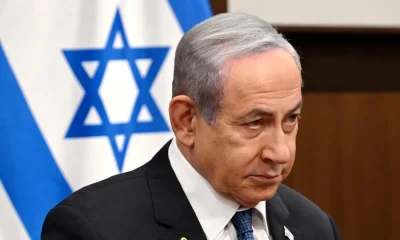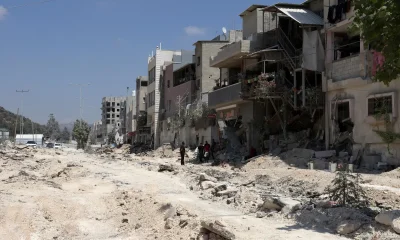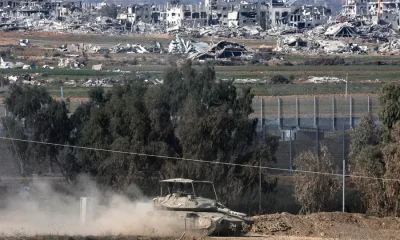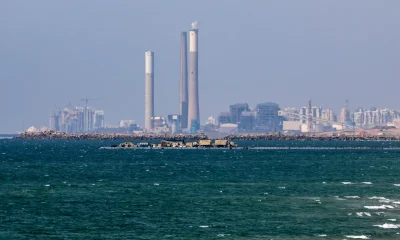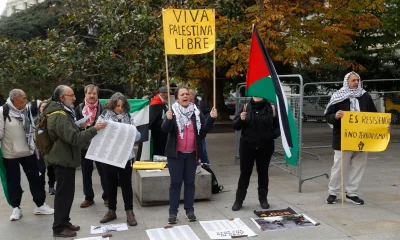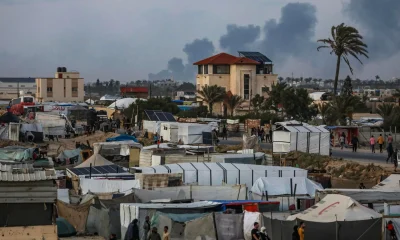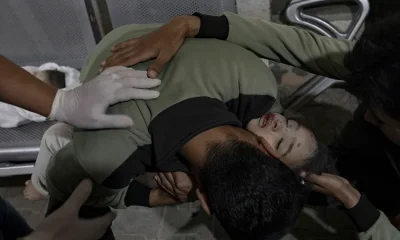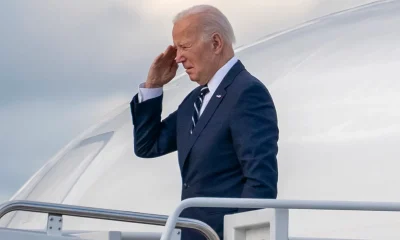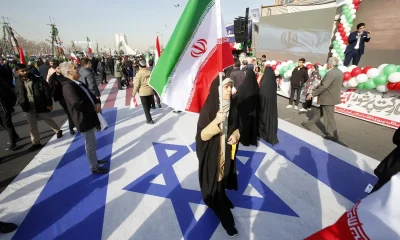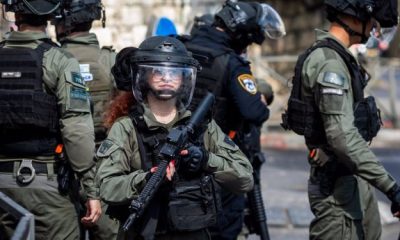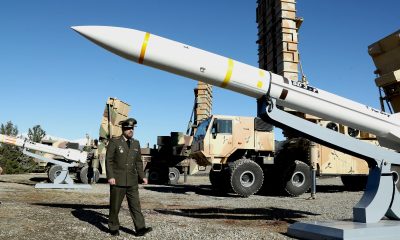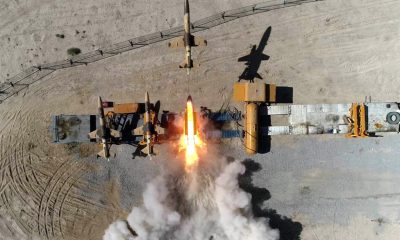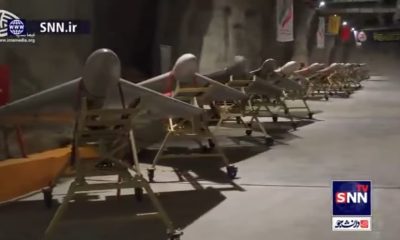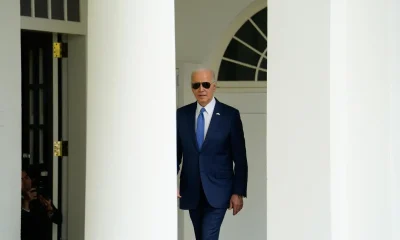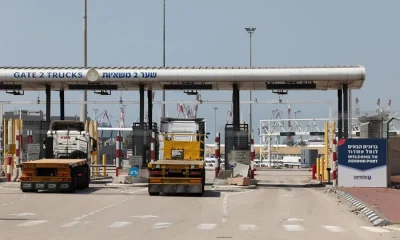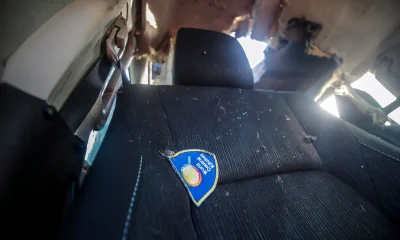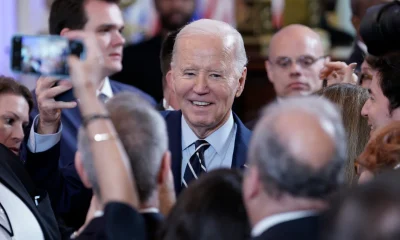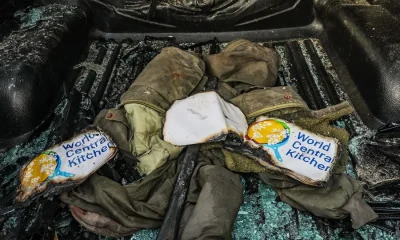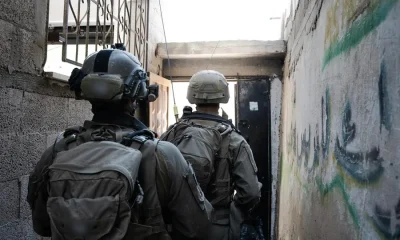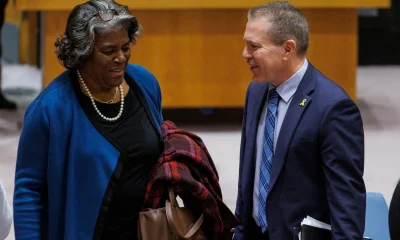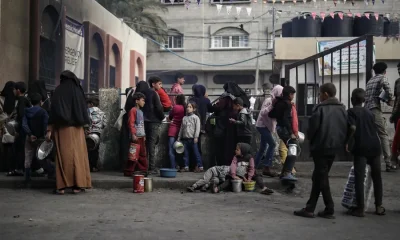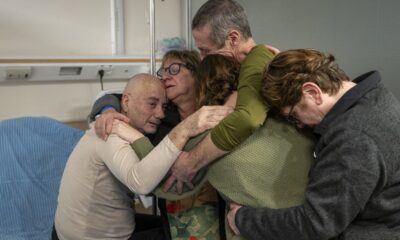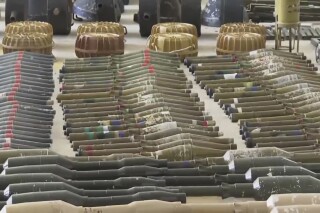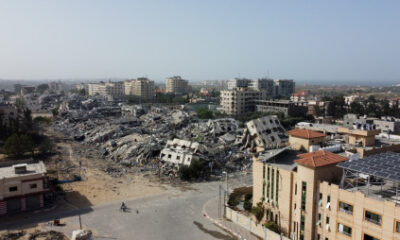International
Israel operates throughout the city of Rafah and leaves more than 25 dead in attack on displaced people
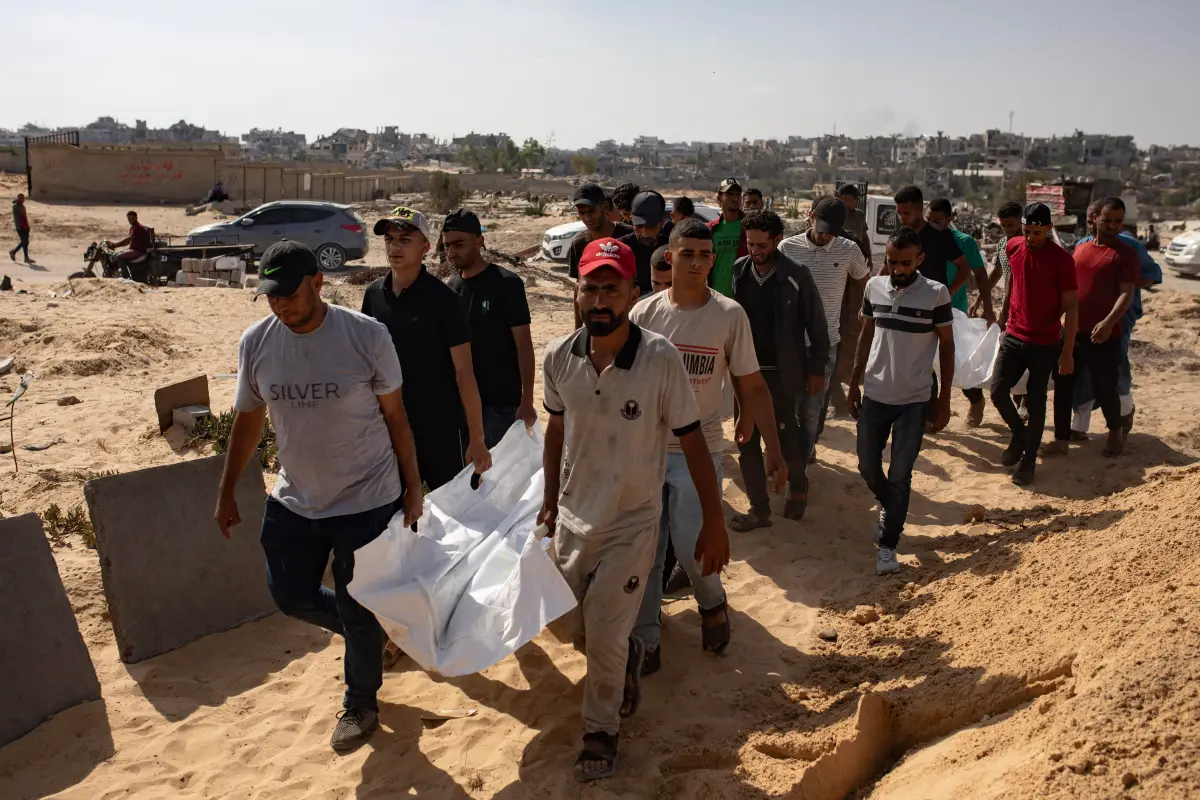
The Israeli Army intensified its attacks and incursion in the heart of the city of Rafah, southern Gaza, as well as on its western side; causing, according to medical sources, at least 25 deaths in an attack on displaced people’s tents – which is not attributed – and great destruction in residential neighborhoods.
As Palestinian sources confirmed to EFE, the attacks are now concentrated in Al Auda, in the center of the city of Rafah, and in Tal al Sultan, a neighborhood in the northwest. The southern and east areas are already under their control weeks after the Israeli tanks began their incursion into the city, on May 6.
“The whole city of Rafah is an area of Israeli military operations,” Ahmed al Sofi, mayor of Rafah, said today in a statement released by the Palestinian Islamist group Hamas on Telegram. “The city is experiencing a humanitarian catastrophe and people are dying inside its tents due to the Israeli bombings.”
Sofi added that there is no medical center left in operation in the city and that residents and displaced people – according to UNRWA about 65,000 people, although before the military incursion there were 1.4 million Gaza refugees in Rafah – cannot meet their daily needs for food and water.
The third point of intense military activity, according to local sources to EFE, is still the so-called Philadelphia corridor, the 14-kilometer border line with Egypt that Israel aspires to control, according to military sources, in order to cut the network of tunnels that supplies Hamas and helps it both to rearm itself and to attack.
In this area, the destruction of infrastructure is being absolute, and a kind of buffer strip has been created, as in the Saudi Quarter of Rafah (west), where units of Army engineers are flying residential buildings.
Since this morning, at least 25 Gaza people died and 50 were injured after an Israeli bombing of displaced people’s stores in Al Mawasi, northwest of Rafah, according to the Ministry of Health, an event that the Israeli Army, after a preliminary investigation, claims to be unaware of but claims to be investigating.
In the northern city of Gaza, at least 17 Gazans died: ten after Israeli fighters bombed a home in Beach Camp, five municipal officials in an attack in the center of the city and two others in attacks in the Zeitun neighborhood, the Palestinian agency Wafa reported.
In addition, two more Gazazians lost their lives today north of the city of Rafah, in the neighborhood of Khirbet al Adas, according to Palestinian sources, which would increase the total number of deaths to 37,470 in eight and a half months of Israeli offensive.
In the north, the lack of food and food is still a critical issue. According to UN data from July 1 to 18, of the 61 coordinated humanitarian assistance missions in northern Gaza, only 28 – 46% – were facilitated by the Israeli authorities, details the UN Agency for the Coordination of Humanitarian Affairs (OCHA).
“The absence of healthy food and drinking water accelerates the spread of diseases,” Hosam Abu Sfiya, the director of the Kamal Adwan Hospital, in the northern Strip, warned today in a statement. “We have not received any essential supplies in the northern Gaza Strip, especially food for children.”
The reality in the enclave is that only a tiny minority can eat regularly, in the absence of food or unaffordable prices. Many do it once a day and there is a lack of milk and porridge, denounce organizations on the ground. In addition, the shortage of fuel forces you to burn plastic or firewood to cook.
Some diseases are re-emerging, such as hepatitis and gastroenteritis.
“All we can offer are some medical solutions for malnourished children,” Hosam Abu Sfiya continued. “We demand the entry of fuel, food and medical supplies.”
For its part, the NGO Doctors Without Borders (MSF) warned today of the psychological trauma that the war is causing to the children of Gaza, with some not wanting to continue living surrounded by so much death.
“What we are seeing in young children, especially, are symptoms of depression because they have lost everything. They have lost their parents, their siblings, their home, their toys, everything that made their daily life normal,” the organization said in a statement.
International
U.S. Senate Rejects Budget, Bringing Government Closer to Shutdown Amid DHS Dispute

The U.S. Senate voted on Thursday against a budget proposal in a move aimed at pressuring changes at the Department of Homeland Security (DHS), following the killing of two civilians during a deployment of immigration agents in Minneapolis.
All Senate Democrats and seven Republican lawmakers voted against the bill, which requires 60 votes to advance, pushing the country closer to a partial government shutdown that would cut funding for several agencies, including the Pentagon and the Department of Health.
The rejection came as Senate leaders and the White House continue negotiations on a separate funding package for DHS that would allow reforms to the agency. Proposed measures include banning Immigration and Customs Enforcement (ICE) agents from wearing face coverings and requiring them to use body-worn cameras during operations.
The vote took place just hours after President Donald Trump said he was “close” to reaching an agreement with Democrats and did not believe the federal government would face another shutdown, following last year’s record stoppage.
“I don’t think the Democrats want a shutdown either, so we’ll work in a bipartisan way to avoid it. Hopefully, there will be no government shutdown. We’re working on that right now,” Trump said during a Cabinet meeting at the White House.
International
Trump Says Putin Agreed to One-Week Halt in Attacks on Ukraine Amid Extreme Cold

U.S. President Donald Trump said on Thursday that he secured a commitment from Russian President Vladimir Putinto halt attacks against Ukraine for one week, citing extreme weather conditions affecting the region.
“Because of the extreme cold (…) I personally asked Putin not to attack Kyiv or other cities and towns for a week. And he agreed. He was very pleasant,” Trump said during a Cabinet meeting broadcast by the White House.
Trump acknowledged that several advisers had questioned the decision to make the call.
“A lot of people told me not to waste the call because they wouldn’t agree. And he accepted. And we’re very happy they did, because they don’t need missiles hitting their towns and cities,” the president said.
According to Trump, Ukrainian authorities reacted with surprise to the announcement but welcomed the possibility of a temporary ceasefire.
“It’s extraordinarily cold, record cold (…) They say they’ve never experienced cold like this,” he added.
Ukrainian President Volodymyr Zelensky later commented on the announcement, expressing hope that the agreement would be honored.
International
Storm Kristin Kills Five in Portugal, Leaves Nearly 500,000 Without Power

Storm Kristin, which battered Portugal with heavy rain and strong winds early Wednesday, has left at least five people dead, while nearly half a million residents remained without electricity as of Thursday, according to updated figures from authorities.
The revised death toll was confirmed to AFP by a spokesperson for the National Emergency and Civil Protection Authority (ANPEC). On Wednesday, the agency had reported four fatalities.
Meanwhile, E-Redes, the country’s electricity distribution network operator, said that around 450,000 customers were still without power, particularly in central Portugal.
Emergency services responded to approximately 1,500 incidents between midnight and 8:00 a.m. local time on Wednesday, as the storm caused widespread disruptions.
The Portuguese government described Kristin as an “extreme weather event” that inflicted significant damage across several regions of the country. At the height of the storm, as many as 850,000 households and institutions lost electricity during the early hours of Wednesday.
Several municipalities ordered the closure of schools, many of which remained shut on Thursday due to ongoing adverse conditions.
Ricardo Costa, regional deputy commander of the Leiria Fire Brigade, said residents continue to seek assistance as rainfall persists.
“Even though the rain is not extremely intense, it is causing extensive damage to homes,” he noted.
In Figueira da Foz, a coastal city in central Portugal, strong winds toppled a giant Ferris wheel, underscoring the severity of the storm.
-

 Central America4 days ago
Central America4 days agoGuatemala seizes over a ton of cocaine hidden in flour at Pacific port
-

 Central America3 days ago
Central America3 days agoGuatemala Police Arrest Prison Guard Caught in the Act of Extortion
-

 Central America3 days ago
Central America3 days agoHonduras swears in conservative president Asfura after disputed election
-

 International4 days ago
International4 days agoHistoric snowstorm paralyzes Toronto after 60 centimeters of snow
-

 Central America3 days ago
Central America3 days agoBukele leads public trust rankings as UCA survey highlights gains in security
-

 International4 days ago
International4 days agoSpain’s irregular migrant population rises to 840,000, study finds
-

 Central America2 days ago
Central America2 days agoGuatemala President Says Starlink Terminal Found Inside Prison
-

 International2 days ago
International2 days agoFootball Fan Killed in Clashes After Colombian League Match
-

 International3 days ago
International3 days agoWinter Storm Fern Leaves 30 Dead and Over One Million Without Power Across the U.S.
-

 Sin categoría3 days ago
Sin categoría3 days agoEight Killed in Series of Armed Attacks in Ecuador’s Manabí Province
-

 International3 days ago
International3 days agoDoomsday clock moves to 85 seconds before midnight amid rising global risks
-

 International3 days ago
International3 days agoSpain approves plan to regularize up to 500,000 migrants in Historic Shift
-

 International4 days ago
International4 days agoRights group says nearly 6,000 killed in Iran protest crackdown
-

 International1 day ago
International1 day agoU.S. Senate Rejects Budget, Bringing Government Closer to Shutdown Amid DHS Dispute
-

 Sin categoría3 days ago
Sin categoría3 days agoEl Salvador Launches Fourth Year of Ocean Mission to Protect Marine Ecosystems
-

 International2 days ago
International2 days agoRubio Says U.S. Could Participate in Follow-Up Russia-Ukraine Talks
-

 International2 days ago
International2 days agoMissing Spanish Sailor Rescued After 11 Days Adrift in Mediterranean
-

 International4 days ago
International4 days agoVenezuela frees at least 80 political prisoners, NGO says
-

 International4 days ago
International4 days agoEU launches new probe into X over AI-generated fake nude images
-

 International1 day ago
International1 day agoTrump Says Putin Agreed to One-Week Halt in Attacks on Ukraine Amid Extreme Cold
-

 International4 days ago
International4 days agoSevere winter storm grips U.S., leaves multiple dead as extreme cold persists
-

 International1 day ago
International1 day agoStorm Kristin Kills Five in Portugal, Leaves Nearly 500,000 Without Power
-

 International1 day ago
International1 day agoMan Arrested After Vehicle Crashes Into Jewish Institution in Brooklyn
-

 International4 days ago
International4 days agoFrance debates ban on social media for children under 15
-

 Central America1 hour ago
Central America1 hour agoPanama Supreme Court Strikes Down Panama Ports Concession as Unconstitutional
-

 Central America1 hour ago
Central America1 hour agoU.S. and Guatemala Sign Trade Deal Granting Zero Tariffs to Most Exports

























